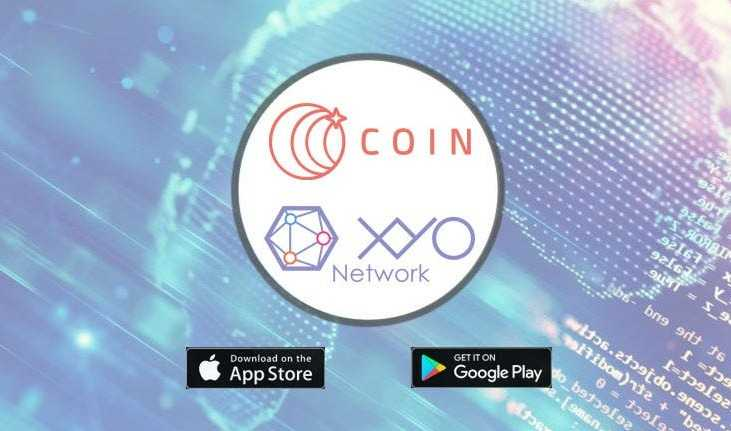Written by ARIE TROUW(Creator of XY Labs, "XYO" token and the free token earning CoinApp!
Freedom in the modern age
Although America is penned “the land of the free,” our freedom comes with exceptions. While some of these restrictions are in the name of civilian safety, what’s happening online isn’t for the greater good — it’s just for lining Big Tech’s pockets and consolidating digital power to the few.
The constant exploitation and control Americans face online needs to be remedied. While politicians propose new bills to keep anti-competitive behaviors in check and wrangle giant tech corporations that have failed to protect consumer privacy, it doesn’t prevent our sovereignty from being taken away.
Our data is under siege. Whether it’s popular social media giants that are liable for improperly profiting from the sale of our user data while preventing access to that data by the very users who created it, or the hospitals that we trust with our lives are tracking our data and transferring it to third parties, nearly all of our online engagements present data and privacy concerns that infringe on our freedom and sovereignty.
The issue extends beyond intentional exploitation by companies due to fallible Web2 infrastructure, which makes our data susceptible to data breaches — of which there were over 612 million as of July 2023 alone. The digital landscape has become an extension of our day-to-day existence, but this online frontier isn’t truly free.
At the very least, Americans should be able to own the data they generate.
What is true freedom of personal data?
Most data privacy concerns boil down to ownership and control. Who can see my data and what can be done with it? Although consumers have the right to thoroughly review and decline the Terms of Service agreement, many fall victim to its confusing tactics. Whether it’s lengthy conditions, ambiguous sign-offs or gatekeeping access, companies know how to trick people into unknowingly signing away their freedom on a daily basis.
So what can we actually do? Swap the centralization for decentralization. While large companies are the main character of centralization models, decentralization puts users at the forefront, empowering them to control their own data through blockchain technologies such as zk-proofs. Decentralization promotes data freedom, improving security, privacy and overall user autonomy. This provides a paradigm shift from theauthoritative Web2 model to the sovereign model of Web3.
What obstacles hold us back?
Although decentralization is the clear answer to restoring our digital freedom, we cannot ignore the various hurdles keeping users from adopting it as an accessible mainstay.
Centralized systems are a large part of our societal framework, providing advantages in efficiency and resource management. As a result, many modern data platforms and services are centralized, collecting and controlling vast amounts of user data and creating more of a reliance on the centralization of power. Given this status quo, most users are truly unaware of how their data is being gathered, stored and utilized by online platforms. Controlling the masses is easily accomplished by showering them with free software and features that they can not live without, yet are unaware of how they become the product.
Other obstacles to decentralization include regulatory and technological challenges. The existing legal framework is largely designed to regulate centralized data systems and may not provide adequate protection for individuals’ data ownership rights. Regulators are used to having laws and regulations that tell centralized authorities what they won’t do. Yet, when there are no centralized authorities, and rules and protections use cryptography to set the rules for what participants can’t do, some may argue that these regulators may not be as needed. So, some would say they have a conflict of interest in maintaining the status quo.
On the technical side, limitations and infrastructure challenges can impede the practical implementation of data ownership, plus interoperability issues between different systems can create barriers to seamless data-owned experiences. Switching to a decentralized cryptographic paradigm is technically challenging, especially when the incumbent powers actively prevent the shift for business and financial reasons.
Embracing centralization also requires changing consumer habits — a task most CEOs know to avoid like the plague. The prevalence of advertising-based revenue models incentivizes companies to collect and control user data, and users to demand free service, hindering the transition towards data ownership models. Over time, users have grown complacent in accepting the data security risks associated with signing up for Twitter or making a purchase online. Users will happily provide $10 worth of data and attention rather than $1 or actual currency in exchange for the services they desire.
Achieving data freedom
Luckily, politicians from both sides of the aisle are beginning to see the immense need for data privacy and sovereignty amid new technological advances. The Biden administration recently published the AI Bill of Rights to make automated systems work for the American people and not against them. DeSantis published his own Digital Bill of Rights shortly after, championing personal data control so users can stay more informed on what’s actually being done with their data.
There are still many steps ahead on the road to achieving true data freedom and self-sovereignty. From receiving clearer guidance and legislation at the crypto level, to properly onboarding people to decentralized finance, to even creating approachable decentralized social media platforms and identity management systems, achieving data freedom is possible. However, it requires a lot of cooperation across several parties — parties who particularly benefit from the current state of things.
But effective legislators recognize the importance of striking a balance between promoting innovation and safeguarding privacy. By advocating for comprehensive privacy laws, supporting research and development in decentralized systems and promoting public awareness, legislators can foster an environment conducive to the growth of a more free and secure internet.
Arie Trouw is the co-founder of XYO and founder of XY Labs.
Earn The XYO Token via the Coin App on your phone by Geomining.












 All while Pfizer—a company with a $2.3 billion criminal fine for fraudulent marketing, bribery, and kickbacks—was given blanket immunity from liability and billions in taxpayer dollars to produce a vaccine in record time with no long-term safety data.
All while Pfizer—a company with a $2.3 billion criminal fine for fraudulent marketing, bribery, and kickbacks—was given blanket immunity from liability and billions in taxpayer dollars to produce a vaccine in record time with no long-term safety data.
























